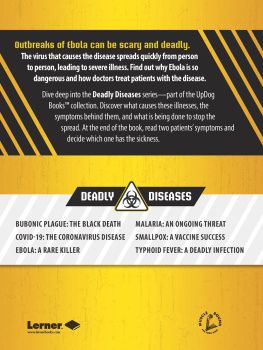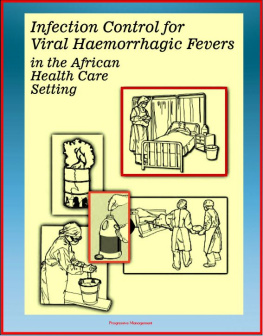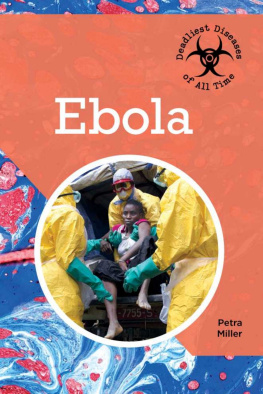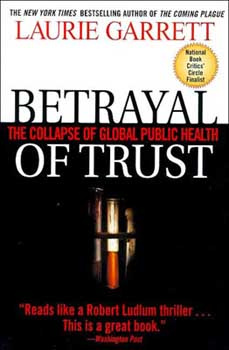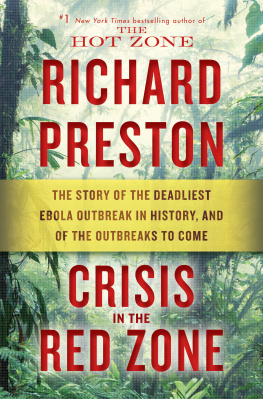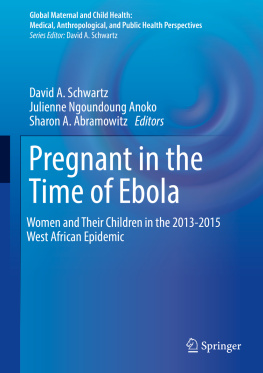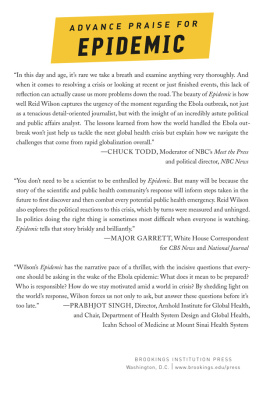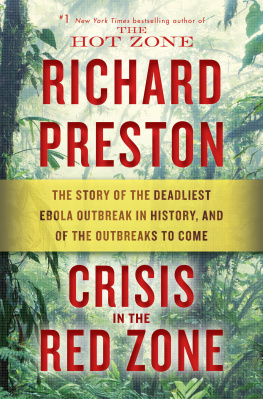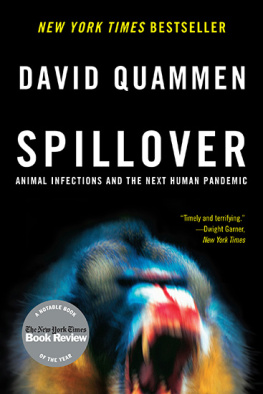YAMBUKU
A FIGHT AGAINST EBOLA AND AFRICAN HAEMORRHAGIC FEVERS
THE MARGARETHA ISACSON STORY
DIANE WOLPERT
A living tribute to Margaretha Isacsons memory would be equitable access to live-saving vaccines for all African children. We should all rise to this enormous challenge with the vigour and determination that characterised this African public health giant.
(Ross, M.H. 2010. SASTM Travel Medicine Congress. October 15-17, Cape Town)
Yambuka The Margaretha Isacson Story copyright JFrean/DWolpert
TO THE READER
YAMBUKU
In 1976, the first case of Ebola was identified in Yambuku, a small village near the Ebola River in the Mongala District of the Democratic Republic of the Congo (known at the time as Zaire). Subsequently, this was designated the epicentre of the Ebola outbreak. In view of the horrific 2014 Ebola outbreak, I find it fitting that the book be named Yambuku .
Diane Wolpert
October 2014
FOREWORD

Margaretha Isacson (1929-2001)
Professor Margaretha Isacson died (aged 72) on Saturday, 20 October 2001, several weeks after surgery to remove a malignant brain tumour. Born in The Hague, the Netherlands in 1929, Isacson overcame family tragedy and tremendous hardship in wartime Europe and was later a wireless operator in the Israeli Air Force. She qualified in medicine relatively late in life and spent almost all her subsequent working life in the South African Institute for Medical Research (since October 2001, the National Health Laboratory Service). Isacson founded and was head of the Department of Tropical Diseases in the School of Pathology of the South African Institute for Medical Research and the University of the Witwatersrand.
Her higher qualifications included MD and DSc degrees as well as the Diploma in Tropical Medicine and Hygiene and the Diploma in Public Health, awarded by the University of the Witwatersrand. Margaretha gained international recognition for her work on cholera and plague in Southern Africa and the African viral haemorrhagic fevers. Her investigations of haemorrhagic fever outbreaks established her international reputation. The Marburg virus outbreak in Johannesburg in 1975 led to an extensive epidemiological investigation.
In 1976, Margaretha was a member of the international commission assembled to investigate the outbreak in the Zairean village of Yambuku of one of the worlds most frightening viruses, Ebola. A Belgian mission hospital and the village were ravaged by the infection with a mortality rate of more than 80%. Despite the danger of exposure to the as-yet-unknown agent, Margaretha immediately became involved in control efforts. At one point, there was an acute electric power shortage. She returned to Johannesburg and flew back with a pair of large generators acquired at short notice by the Institutes buying department.
Professor Isacson was a member of numerous national and international medical bodies; she served as a consultant to the World Health Organization on plague and biological warfare and was a member of the Biological Weapons Working Committee of the South African Council for the Non-Proliferation of Weapons of Mass Destruction. She was involved in pioneering work in urban water reuse in Windhoek, Namibia. She published extensively in international scientific journals.
She was a commissioned officer in the South African Citizen Defence Force, of which position she was extremely proud. This had the practical advantage of facilitating air transport to and from the plague area in Namibia where she did extensive work. After her retirement, she maintained an active interest in travel medicine and was associate editor of the international publication, the Journal of Travel Medicine , for which she meticulously prepared journal abstracts and short literature reviews. One of her last publications, which unfortunately she was not able to see, concerned the first documented outbreak of haemorrhagic E. coli O157 in Africa.
Among her many awards were an honorary fellowship of the Australasian College of Tropical Medicine, an honorary diploma of the American Veterinary Epidemiology Society for distinguished service and contribution to the progress of public health and a Rotary International Paul Harris Fellowship. Margaretha trained in plague research in the United States under the legendary Karl Meyer and completed the CDCs Applied Epidemiology and Biostatistics training course there. Margaretha was a competitive individual who would never compromise her ideals, or show false modesty.
Some people found her abrasive and overly self-assured. Often, I think it was those who shared her personality traits that clashed with her. Under a tough veneer was a person with a keen sense of humour who was generous with her knowledge and experience and whose death leaves a void in the ranks of public health experts in Africa and the world. At the time of her death, Professor Isacson was busy writing her memoirs with the intention of eventually publishing them. The account ends abruptly, reflecting the untimely death of Margaretha who tragically left the manuscript in an unfinished form. Although incomplete, these personal writings make compelling reading and will have a special appeal for those who knew her.
Associate Professor John Frean
MB Bch, MMed (Path), MSc (Med Parasitol), DTM&H, FACTM, FFTM RCPS (Glasg).
National Institute for Communicable Diseases, National Health Laboratory Service and University of the Witwatersrand, Johannesburg, South Africa
Margaretha Isacson Memorial Lecture:
Immunisation a question of equity?
Nine years after bidding farewell to Margaretha Isacson, a marvellous lady and one of Africas greatest public health pioneers, it is fitting to reflect on her remarkable broad-ranging contribution to the disciplines of tropical medicine and travel medicine, and her legacy in tackling novel, emerging infectious disease risks. Not only was Prof Isacson a formidable field epidemiologist and dedicated laboratory researcher, she was an inspiring teacher who had a unique ability to stir the next generation of African public health researchers into action.
Prof Isacsons greatness is also reflected in her passion for equitable access to effective public health measures. This prompted her work among refugee and displaced rural communities and also stimulated her research into affordable and effective plague vaccines for rural Africans. Her achievements in global immunisation coverage were profound but sadly inequitable.
One-third of infants that do not receive the basic expanded programme of immunisation vaccines before their first birthday live in Africa. Children who live in poor households and rural areas are more likely to miss out. Although measles elimination in Africa is biologically and technically feasible, weak health systems confound this worthy goal.
Tragically, two decades after the adoption of the Convention on the Rights of the Child, many African children do not yet benefit from the wonder of immunisation. A living tribute to Margaretha Isacsons memory would be equitable access to life-saving vaccines for all African children. We should all rise to this enormous challenge with the vigour and determination that characterised this African public health giant.
Prof D.N. Durrheim
Hunter New England Population Health, New South Wales
ACKNOWLEDGEMENTS
When I started this project, I never envisaged the incredible amount of help, kindness and guidance I would receive.
Professor John Frean: There are no words that could possibly thank you enough. Your foreword and epilogue included in this book are truly appreciated. I would also like to express my deepest gratitude for the memoirs and the numerous photographs that you so readily made available to me.
Next page


